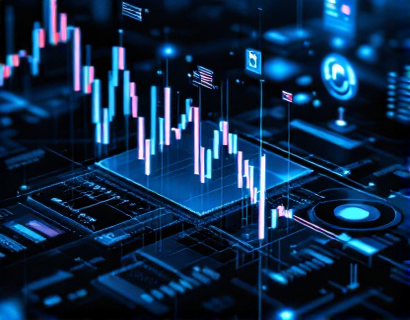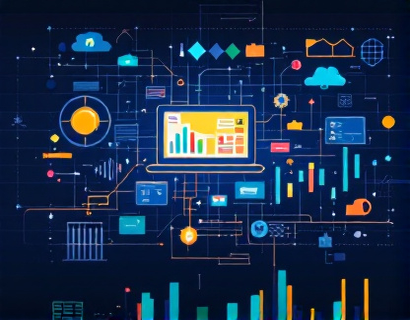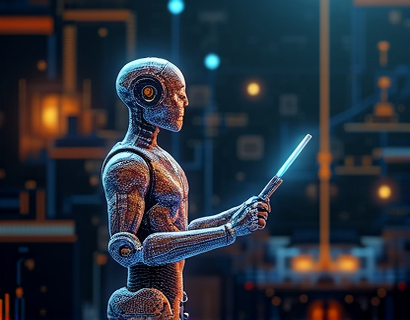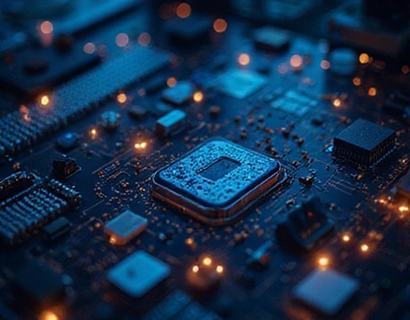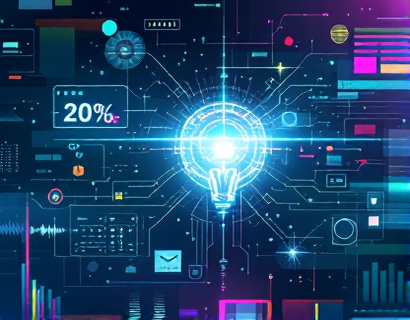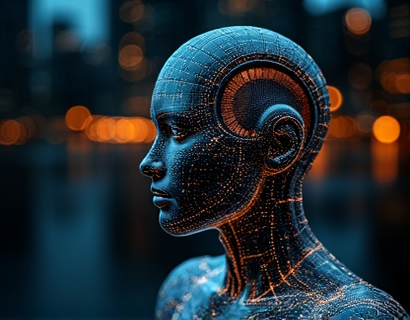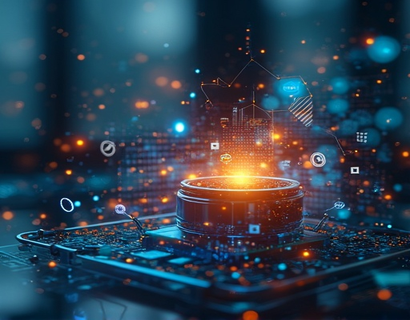Unlocking the Potential of Crypto and AI: Revolutionizing Digital Experiences with Advanced Technology Solutions
The intersection of cryptocurrency and artificial intelligence (AI) is giving birth to a new era of digital innovation, transforming the way we interact with financial systems and technology. This fusion of technologies is not just a trend but a fundamental shift in how we perceive and utilize digital experiences. As we delve into this topic, we will explore the synergies between crypto and AI, their applications, and the profound impact they are having on the FinTech landscape.
Understanding Cryptocurrency and AI
Cryptocurrency, often referred to as digital or virtual currency, operates on a decentralized network using blockchain technology. This technology ensures transparency, security, and immutability in transactions, eliminating the need for intermediaries such as banks. On the other hand, AI refers to the simulation of human intelligence processes by machines, particularly computer systems. These processes include learning (the acquisition of information and rules for using it), reasoning (using rules to reach approximate or definite conclusions), and self-correction.
The convergence of these two technologies is creating powerful tools that can revolutionize various sectors, with FinTech being at the forefront. The integration of AI in cryptocurrency markets is enhancing trading algorithms, risk management, and customer service, while blockchain provides the secure and transparent foundation necessary for AI-driven applications to thrive.
AI in Cryptocurrency Markets
One of the most significant applications of AI in the crypto space is in trading and investment strategies. AI algorithms can analyze vast amounts of data, identify patterns, and make predictions with a level of speed and accuracy that surpasses human capabilities. These algorithms can be used for automated trading, where decisions are made in real-time based on market conditions, thereby optimizing returns and minimizing risks.
Moreover, AI-driven sentiment analysis can gauge market sentiment by analyzing social media, news articles, and other online platforms. This insight can help traders make more informed decisions, anticipating market movements before they occur. The ability to process and interpret large datasets in real-time gives AI a competitive edge in the fast-paced world of cryptocurrency trading.
Enhancing Security with AI
Security is a paramount concern in the cryptocurrency world, and AI is playing a crucial role in addressing these challenges. AI-powered systems can detect and prevent fraudulent activities by identifying unusual patterns and behaviors that deviate from the norm. Machine learning models can be trained to recognize signs of phishing attacks, hacking attempts, and other malicious activities, providing a proactive defense mechanism.
Additionally, AI can enhance the security of blockchain itself by improving consensus mechanisms and optimizing the validation process. This not only increases the efficiency of blockchain networks but also makes them more resilient against attacks. The combination of AI and blockchain can lead to more secure and reliable digital transactions, fostering greater trust in cryptocurrency systems.
AI-Driven Customer Service in Crypto
The customer service sector in the crypto industry is also benefiting from AI advancements. Chatbots powered by natural language processing (NLP) can provide 24/7 support to users, answering queries, and guiding them through complex processes such as wallet setup and transaction execution. These chatbots can understand and respond to user requests in a human-like manner, enhancing the user experience and reducing the workload on human support teams.
Furthermore, AI can personalize user experiences by offering tailored recommendations based on individual preferences and behavior. For instance, a crypto exchange can use AI to suggest investment strategies or highlight relevant products and services to its users, thereby increasing customer satisfaction and engagement.
Blockchain and AI in Decentralized Applications
The synergy between blockchain and AI is particularly evident in the development of decentralized applications (dApps). These applications leverage the transparency and security of blockchain while utilizing AI to provide intelligent and autonomous functionalities. For example, decentralized finance (DeFi) platforms can integrate AI algorithms to offer smart lending, borrowing, and yield optimization services, all executed on a blockchain network.
dApps can also benefit from AI in enhancing user interfaces and experiences. By analyzing user interactions and feedback, AI can continuously improve the usability and functionality of these applications, making them more intuitive and user-friendly. This fusion of technologies is paving the way for a new generation of decentralized services that are both secure and intelligent.
Challenges and Considerations
While the potential of combining crypto and AI is immense, there are several challenges and considerations that need to be addressed. One of the primary concerns is regulatory compliance. The crypto industry is still navigating a complex landscape of regulations, and the integration of AI adds another layer of complexity. Ensuring that AI-driven crypto solutions comply with existing laws and regulations is crucial to avoid legal issues and maintain user trust.
Another challenge is the technical integration of AI and blockchain. Developing systems that seamlessly combine these technologies requires expertise in both domains. There is a need for skilled professionals who can bridge the gap between AI development and blockchain technology, ensuring that the resulting solutions are robust, efficient, and scalable.
Future Prospects
The future of crypto and AI is bright, with numerous opportunities for innovation and growth. As technology continues to advance, we can expect to see more sophisticated AI algorithms and more widespread adoption of blockchain-based systems. The convergence of these technologies will likely lead to the creation of new financial instruments, more efficient market mechanisms, and enhanced user experiences.
Moreover, the integration of AI and crypto can extend beyond FinTech, impacting industries such as healthcare, supply chain management, and even governance. The ability to process and analyze large datasets, combined with the security and transparency of blockchain, opens up a myriad of possibilities for transforming various sectors.
Conclusion
The fusion of cryptocurrency and AI is not just a technological advancement but a paradigm shift in how we approach digital experiences. By leveraging the strengths of both technologies, we can create more secure, efficient, and user-friendly solutions that redefine the future of finance and technology. As we continue to explore and harness this potential, the possibilities are endless, promising a more innovative and connected world.




